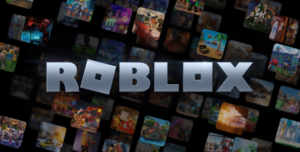Unreal Engine vs. Unity 3D Games Development: What to Choose?

Unity 3D and Unreal Engine are the two big shots in the gaming industry. The game engines are worthy competitors. There is still a heated debate among many independent developers and studios on which engine is better and why. While some people argue, Unity 3D and Unreal are swiftly developing. 48% of the market share in the gaming industry belongs to Unity 3D, whereas its counterpart takes only 13%. If you cannot decide which game engine to choose, the following factors will help you.
What’s Your Plan?
To select a suitable engine for creating a game, you should consider several factors.
- What game are you going to create? Is it going to have 3D or 2D designs? It’s recommended to keep the game simple and entertaining if it’s your first one. For instance, puzzles can be appropriate for the beginning. As a startup Unreal engine game development company, you can add high-quality, colorful, and realistic visuals and playful melody.
- What’s your goal? Do you make a game to play with friends and family? Or are you planning to add it on Play Market and App Stores so that people can download it for free or purchase and enjoy playing?
If you can’t answer all these questions, you cannot choose an appropriate gaming engine.
Pricing
Pricing is crucial in choosing a suitable engine. It’s fair to mention both offer free of charge and paid features. However, they have entirely different payment systems.
Unreal offers to use all features of the fully functional platform free of charge unless the quarterly revenue generated by the game exceeds 3K USD. If your income grows more than that, you should pay 5% to Unreal Engine.
Unity offers Personal, Plus, and Pro subscription plans. The Personal one is suitable for people (not businesses) and is entirely chargeless. The Plus plan includes two subscription options (monthly and annual) and costs 35 USD/month. The Unity game engine cost for the Pro package includes three plans – monthly, annual, and two-year subscriptions. Costs vary depending on the subscription option. For instance, the monthly one costs 125 USD.
Programming Languages (Unity vs. Unreal)
Another crucial aspect to consider before choosing a game development platform is the programming languages used. For example, to create a game on Unreal Engine, you must be skillful at C++. On the other hand, if you are experienced in JavaScript or prefer working with C#, then most probably Unity 3D is the right call. However, don’t worry if you have no clue about coding. Turn to the help of game development companies like Kevurugames to make the game of your dreams.
Asset Store Unity vs. Unreal
Like libraries speed up the development process of web apps or software and cut down the effort and time, game engines also have asset stores. They contain ready-made components such as characters, melody, environments, which can be inserted into the game immediately. The comparison of stores shows that the Unreal Engine component store has few items. On the other hand, Unity 3D has more ready-to-use assets than its counterpart. Hence, making a game with this platform is faster and requires less coding.
Ease of Use (Unity vs. Unreal)
User experience is another critical aspect to consider in the Unreal Engine vs. Unity competition. Unity 3D is famous for its user-friendly interface. That’s why even beginner engineers can start building games with it. Unfortunately, the Unreal Engine stays back since its user interface isn’t as responsive as it should be. For instance, several activities like importing assets or executing uncomplicated tasks go slow and require unnecessary steps. In contrast, the interface of Unity 3D is quick and light.






